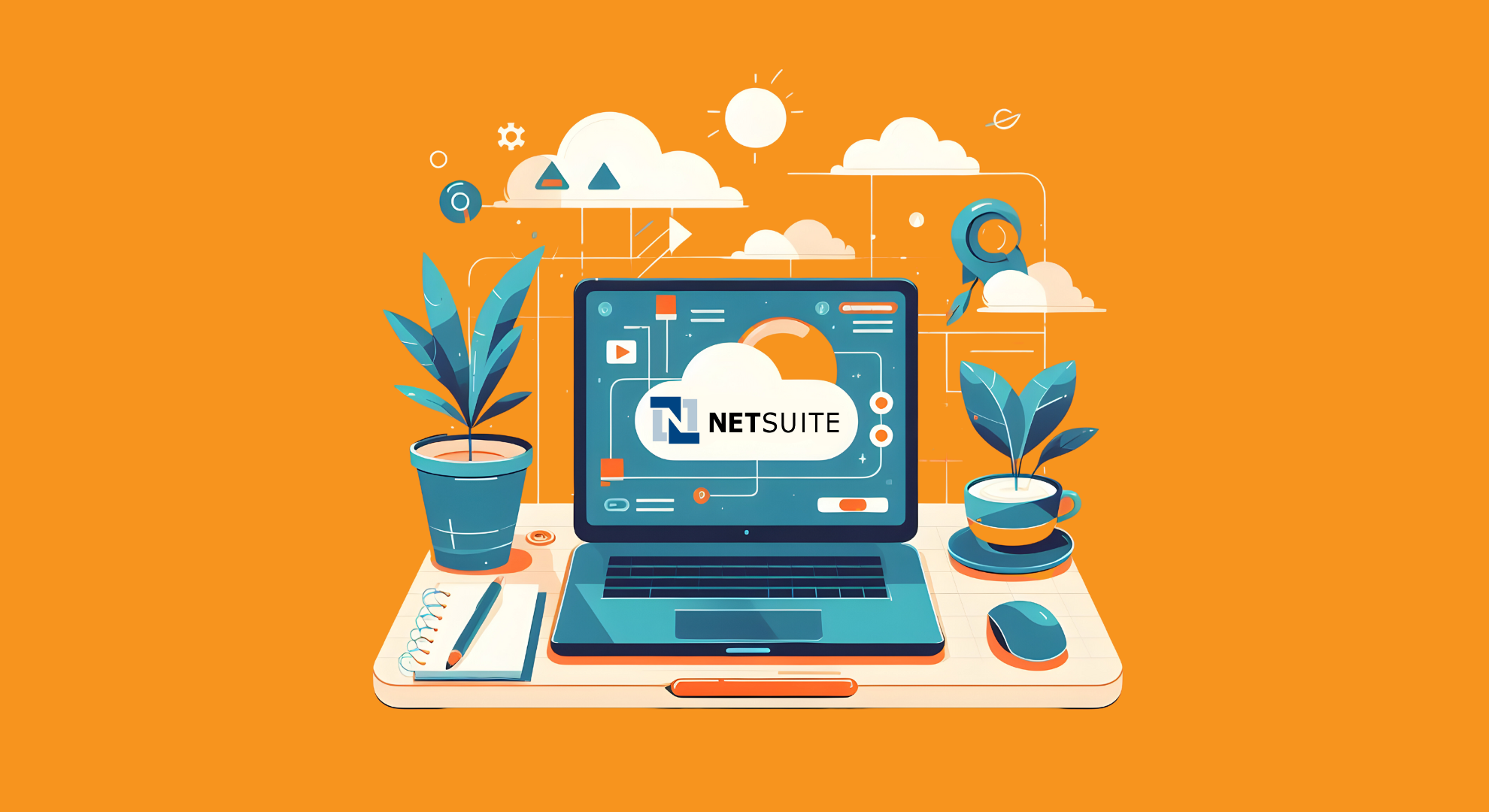Table of Contents
What is NetSuite Accounting Software?
NetSuite Accounting is a cloud-based accounting software that helps organizations automate financial processes. The software provides real-time insights into critical financial data across an organization. NetSuite Accounting is part of NetSuite’s ERP solution.
With NetSuite Accounting, users can access the general ledger, accounts receivable, accounts payable, order management, billing, invoicing, and other accounting activities from a unified cloud platform. The software eliminates the need for multiple disconnected accounting systems.
NetSuite Accounting helps streamline processes like:
- Financial reporting and planning
- Revenue recognition
- Expense allocation
- Audit and compliance
- Account reconciliation
And more while providing real-time visibility into financial and operational data.
How to Use NetSuite for Accounting?
Using NetSuite Accounting involves setting up the accounting structure per your business requirements. Key steps include:
- Configuring general ledger accounts
- Setting up accounting and reporting rules
- Create invoices, bills, credit memos, etc.
- Processing payments
- Reconciling bank statements
- Generating financial reports
NetSuite provides various role-based dashboards for accounting teams. Users can get a real-time view of AR, AP, collections, payments, expense allocations, and other transactions. Customized reporting allows for generating reports for strategic decision-making.

Benefits of Using NetSuite Accounting Software
NetSuite Accounting offers various benefits, including:
- Real-time visibility: The software provides real-time information on cash flow, AR aging, collections, and other critical financial data.
- Unified platform: All accounting activities are managed from a single unified platform, eliminating the need for multiple systems.
- Scalability: NetSuite supports dynamic business growth without needing any additional accounting software.
- Customization: Flexible workflows can be tailored to match unique business processes.
- Data security: Stringent access controls and data encryption provide robust data security.
NetSuite Accounting Software Features
Critical features of NetSuite Accounting include:
- General Ledger – Chart of accounts, multi-book accounting, financial reporting and planning
- Accounts Receivable – Invoicing, collections, revenue recognition, credit terms
- Accounts Payable – Expense allocation, vendor payments, bill management
- Order Management – Order orchestration, billing, invoicing, inventory
- Payroll Management – Payroll processing, taxes, payments, compliance
- Dashboards – Pre-built KPIs for cash management, AP, AR, and other functions
- Audit Trails – Complete audit trails for financial transactions
- Fixed Asset – Asset tracking, depreciation schedules, lease accounting
NetSuite Accounting Software Pricing
NetSuite uses a tiered pricing model based on business requirements. Cost varies based on the number of users, transactions, features, and level of support. Contact NetSuite sales or a NetSuite partner for pricing details.
NetSuite also provides custom editions designed for specific industries or business needs, with specialized capabilities and pricing.
Types of Businesses That Use NetSuite Accounting
NetSuite Accounting is widely used across industries like:
- Manufacturing – Wholesale distribution, engineering
- Services – Advertising, marketing agencies, IT services, hotels
- Nonprofits – Foundations, healthcare, higher education
- Software – SaaS, tech startups, software companies
- Retail & E-commerce – Online and traditional retailers
And more. Mid-sized to large enterprises across verticals rely on NetSuite to manage mission-critical accounting.
NetSuite Accounting Services – one-stop
Implementing an ERP like NetSuite requires careful planning and execution. Profitjets, a NetSuite solution provider partner, offers end-to-end services for NetSuite Accounting implementation.
Their services include:
- NetSuite evaluation, selection, and budgeting
- Project management of implementation
- Software customization and integration
- Data migration
- NetSuite allows customization in terms of your business needs
- Training and adoption
- Automated intercompany eliminations, currency translations and equity roll ups across subsidiaries
- Multi-book accounting for managing books per GAAP, IFRS and other standards from one platform
- Continuous audit-ready processing for fast period close and external reporting
- Ongoing managed services
Schedule a free consultation to learn how we can ensure your NetSuite accounting implementation success.
NetSuite vs QuickBooks
While QuickBooks suits small businesses, NetSuite is ideal for fast-growing mid-sized to large enterprises. NetSuite comes packed with advanced functionality supporting long-term business scalability that QuickBooks lacks.
Some key differences between the two platforms:
- Scalability – Unlike QuickBooks, NetSuite can quickly scale to accommodate business growth of 5000+ employees with billion-dollar transaction volumes.
- Customization – Highly flexible configuration using SuiteCloud tools vs limited flexibility with QuickBooks.
- Unified platform – NetSuite delivers an integrated suite covering CRM, inventory, billing, and HCM other than just accounting. QuickBooks offers primarily accounting functions.
- Business intelligence – Robust real-time analytics and reporting powered by suite analytics vs canned reports in QuickBooks.
Additionally, NetSuite invests over $500 million annually in research and development to continuously expand platform capabilities according to emerging business needs. This long-term product investment and innovation is possible due to NetSuite being backed by Oracle. QuickBooks on the other hand has faced stagnancy allegations and has limited R&D bandwidth to match up to full-fledged ERP solutions.
In summary, businesses needing advanced accounting capabilities tightly integrated with other business processes should strongly consider NetSuite over entry-level solutions like QuickBooks.







